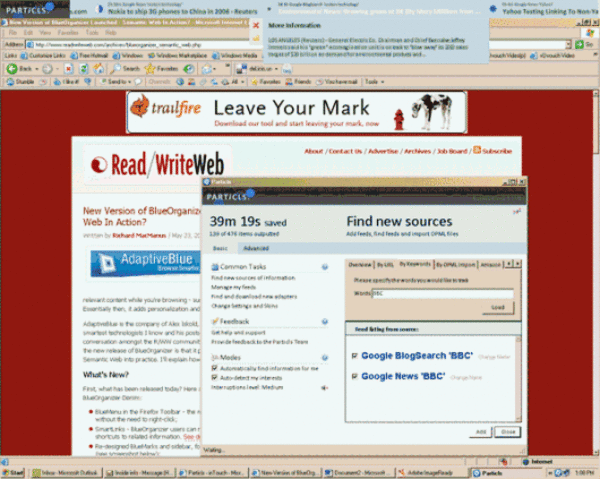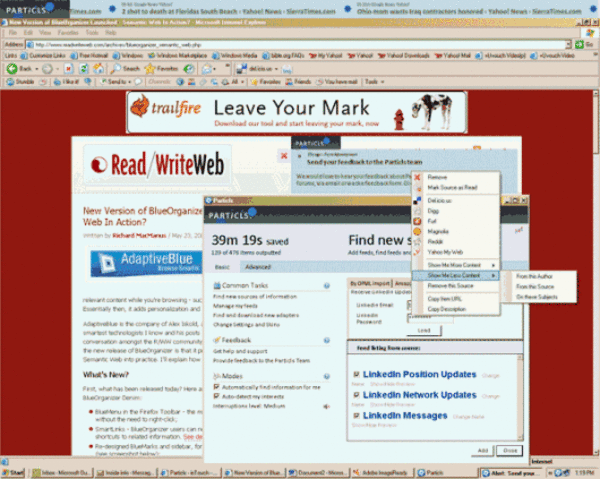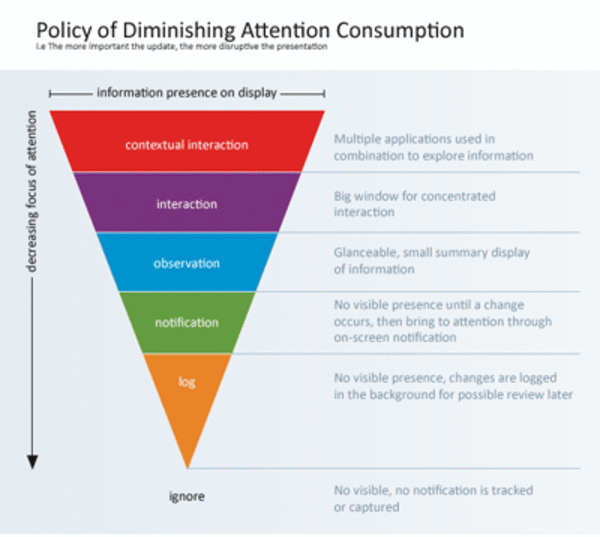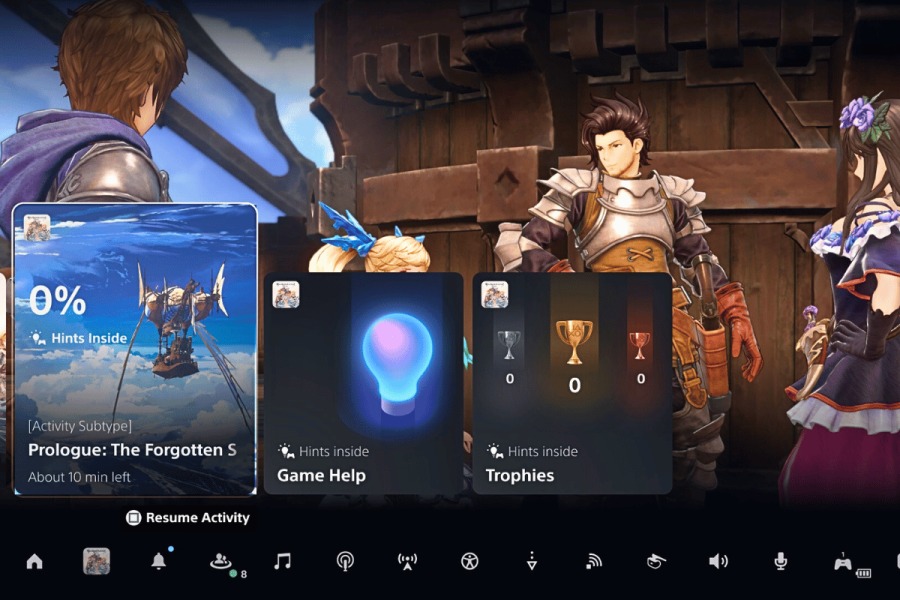Today Particls, billed by many as an RSS feed manipulator/organizer, came out of invitation-only testing with a host of tools for users. Particls essentially serves as a proportioning alert filter that notifies the user via news ticker, pop-up alerts and mobile SMS messaging prioritized according to user needs. The service has many refined consumer side tools, but there is a publisher/developer aspect that adds another dimension to what CEO Chris Saad terms “an attention management engine.”

Particls was launched in January of 2006 by Chris Saad, Co-Founder and CEO of Faraday Media, and Co-Founder Ashley Angell. The company has been in private alpha with over 2000 testers and now public beta promises to further refine Particls.
Features on the Consumer Side
Perhaps it is best to describe what Particles is not, in order to paint an accurate picture of the development. The service is decidedly not a newsreader, but it is an advanced alerts platform. The information service operates in the background and is secondary to a user’s primary tasks – but it still allows for instant access to critical information.
Particls is not a widget or gadget engine, because the output adapters are each designed to consume varying levels of user attention. The service basically ranks incoming information by personal relevance to the user and reduces unwanted data input.
Particls ticker and basic UI

Basic Functions
- Instant alerts prioritized via RSS
- Desktop collapsible ticker
- Sharing read and highly rated items
- Add on adapters
- Simple feed subscription
- Automatic headline location
Advanced Features
- Right-click actions – A toggle function that allows for Digg, Reddit, Sphere and Del.ico.us submission. The function also allows for rating of content for input to user relevance.
- Tear-offs allow the pop up alerts to be placed on the desktop like post it notes that can be read later.
- Image support alerts – Alerts contain images so users can subscribe to photo streams and graphics via Flickr and other services.
- Auto Away – Detects when a user is away from the computer and holds alerts.
- Auto subscriber – This aspect learns user preferences and automatically subscribes them.
- Interest Searches – Automatically sets up searches for personally relevant Internet data.
- Auto-detected Interests – Saves browser history/attention data to refine content display.
- RSS sharing – Allows sharing of highly rated items via RSS via widgets, free readers and other RSS compatible services. This feature can be added to a blog sidebar to inform readers of items getting a bloggers attention.
Particls UI, ticker, right click and other advanced features

As you can see, Particles is a rather more intelligent utility than a simple reader or widget. The heart of this innovation’s philosophy is defined by the “Policy of Diminishing Attention Consumption“, best described graphically below.
Diminishing Attention Consumption

Developer/Publisher Side
Particls allows developers to maximize utility through SubscriptionHelpers (to let users grab new XMP data from Soft APIs, re-skin the ticker to personal user preferences, write input/output adapters) and via the inTouch programs. Developers have two levels of customized news and alerts systems for their readers/subscribers. These custom embeddable widgets extend a site’s reach and branding capabilities while providing second tier users Particls’ innovative features.
InTouch Basic allows for simple integration of Particls by simply typing the URL to RSS/Atom Feed or OPML and copying the embed code. The inTouch Partner program provides more advanced integration, customization and flexibility. Particls can be skinned to re-brand the service, alert users to more content from the host site, gain insight into readers’ interests and offer revenue sharing to partners. Both versions of inTouch are free services supported by ads, but Particls is also offering a partner version free of ads at a low subscription fee.
Conclusion
Particls is a simple service to use, but it is also a complex and innovative set of rich tools for filtering data. The re-branding capability for developers is of particular importance, as revenue sharing and content distribution will allow for superb growth potential. From a site developer/blogger perspective, Particls seems almost indispensable. Particls is the culmination of Web 2.0 technologies we have seen directed at solving our growing data overload problem. RSS and feeds will never be the same after today in my view, as the bar has been raised substantially by Particls. Potential developers and users can lean more about extending Particls on these wiki pages and in Tangler.





















